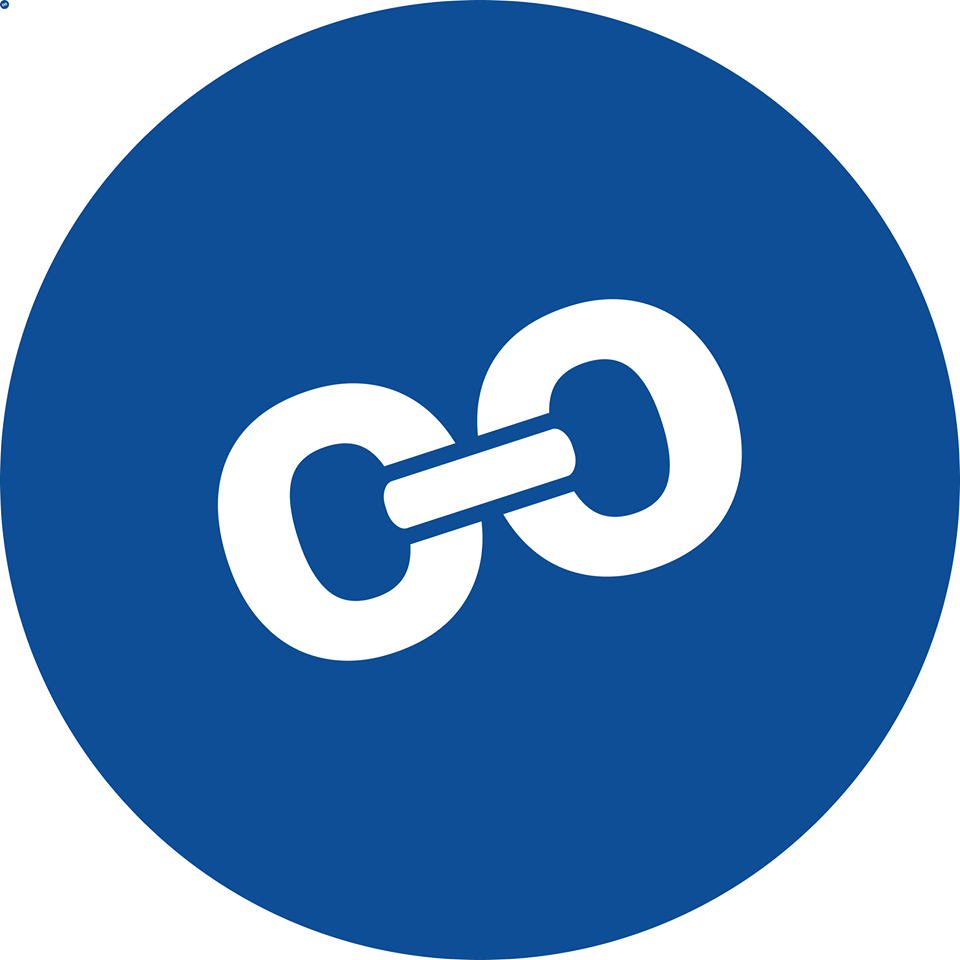Yes, most online CRM software is compatible with different devices and platforms. This enables users to access their CRM system from any location or device with internet connectivity. Whether you're using a laptop, tablet, or smartphone, you can simply access all of your CRM system's data and information. This provides ease and flexibility for organizations and employees.
List of 20 Best Online CRM Software
KreativeHive 360 solution for boosting your brand to new heights of success. Blending strategy and skill, our team delivers unparalleled results, ensuring maximum return on investment for your business. With unwavering dedication and a meticulous app...Read More KreativeHive 360
A Employees App, designed to simplify all your employee management tasks. Easily add and organize employees, monitor their skills and pay, and delegate tasks, projects, and clients with ease. Plus, creating Apptivo accounts for your team members is a...Read More Employees App
CRM ON CLOUDS the CRM solution designed for small businesses and startups. Gain access to premium features at an unbeatable cost - absolutely free for up to 10 users and just $2 per additional user. Maximize efficiency by managing your sales, marketi...Read More CRM ON CLOUDS
Fitnet Manager is ERP software developed in France to streamline business operations and reduce administrative workload. It offers customizable cloud-based automation to cater to the unique requirements of various industries, ensuring seamless data m...Read More Fitnet Manager
EASECRM is a cloud-based tool for effectively managing leads and follow-ups. With its comprehensive features, this all-in-one solution simplifies contact data management through a user-friendly web application. Say farewell to messy data and welcome...Read More EASECRM
Vitalblocks CRM is a choice for businesses seeking a premium CRM solution. With 8 years of expertise and a worldwide client base, we are a renowned cloud company in the industry. Our unmatched services have established us as a trusted name for fulfil...Read More Vitalblocks CRM
Method CRM is a and effective web-based tool designed for organizing your companys data. With access from any internet-enabled device, you can easily track client, company, and vendor information. Our CRM system, located in the cloud, guarantees that...Read More Method CRM
CALLBEE is a software solution preferred by 20+ organizations for optimizing their support teams. With user-friendly functionalities, smooth integration, and advanced data analysis, elevate your customer support and increase efficiency. Stay connecte...Read More CALLBEE
Pipedrive is CRM software designed to streamline the sales process and give you the tools to effectively prioritize tasks for successful deal closure. With affordable pricing starting at just $14.90 per user per month, Pipedrive allows you to stay on...Read More Pipedrive
NetHunt CRM is a reliable solution built for small and medium-sized enterprises, sales teams, and marketing departments that heavily depend on Gmail and other Google Workspace applications. By leveraging its robust capabilities, NetHunt optimizes cus...Read More NetHunt CRM
Bigin by Zoho CRM is the ideal solution for small businesses ready to elevate their customer relationship management from outdated spreadsheets. Designed with ease of use and essential features, Bigin empowers businesses to boost their growth. Say fa...Read More Bigin by Zoho CRM
Vtiger One is a cloud-based CRM solution tailored for small and medium-sized businesses. Our versatile platform includes Sales, Help desk, Marketing, Projects, and Inventory features, all seamlessly integrated with our cutting-edge customer One View...Read More Vtiger CRM
Solid Performers CRM is a sales and deal management solution. From pre-sales to post-sales, our platform streamlines all your business processes. Highly flexible and adaptable to any industry, our interface simplifies business management. Experience...Read More Solid Performers CRM
Bluwave CRM is a cost-effective, cloud-based solution designed for small and medium businesses. With its powerful features like opportunity management, automated workflows, and seamless integration with accounting platforms, it streamlines customer i...Read More Bluwave CRM
monday sales CRM solution for sales managers and teams seeking to enhance their sales process. This powerful tool enables you to take charge of the entire sales cycle, from generating leads to communicating with clients, effortlessly. Say farewell to...Read More monday sales CRM
Toolyt is tool designed to support field officers in maximizing productivity through customizable and event-driven workflows. Our platform allows for effortless monitoring of sales and field operations, as well as tracking the performance of your tea...Read More Toolyt
IPIX CRM, a software trusted by small, medium, and large enterprises in India and the USA. This affordable and user-friendly platform is fully cloud-based, making it the perfect solution for managing customer relationships. Its seamless integration w...Read More IPIX CRM
Bonsai - the essential software for small businesses, agencies, and self-employed professionals. Simplify your entire business process with features like proposal generation, contract tracking, invoicing, and tax assistance. Eliminate tedious tasks a...Read More Bonsai
LogiNext On-Demand – solution to revolutionize your companys logistics and on-demand delivery services. By automating and optimizing the process, this software guarantees prompt and proficient express deliveries. Say farewell to setbacks and w...Read More LogiNext On-Demand
Salesinteract is a CRM solution that provides a 30-day free trial without the need for a credit card. Our platform boasts a user-friendly dashboard that displays live sales and user data, eliminating the need for additional plugins. Experience unprec...Read More Salesinteract
Learn More About Online CRM Software
- What Is Online CRM Software?
- What Are The Recent Trends In Online CRM Software?
- Benefits Of Using Online CRM Software
- Important Factors To Consider While Purchasing Online CRM Software?
- What Are The Key Features To Look For In Online CRM Software?
- Why Do Businesses Need Online CRM Software?
- How Much Time Is Required To Implement Online CRM Software?
- What Is The Level Of Customization Available In Online CRM Software?
- Which Industries Can Benefit The Most From Online CRM Software?
- Conclusion
What Is Online CRM Software?
Online CRM software, often known as customer relationship management software, is a digital tool that enables businesses to monitor and retain client connections. It enables businesses to collect and analyze client data, communication, and marketing efforts in a single web platform. One of the primary advantages of online CRM software is its capacity to collect, organize, and retain client data like as contact information, purchase history, and preferences.
This gives firms a comprehensive perspective of their clients, enabling for more personalized and effective marketing efforts. Companies can use online CRM software to track client communication across multiple channels, including email, social media, and phone conversations. This helps to streamline client interactions and ensures timely and consistent responses, resulting in increased customer satisfaction and retention. Furthermore, online CRM software includes comprehensive reporting and analytics features.
It can generate data-driven insights and KPIs, helping organizations to make more informed decisions and pinpoint areas for improvement in their sales and marketing campaigns. Another benefit of online CRM software is its accessibility. It is cloud-based and accessible from any device with an internet connection, giving customers flexibility and convenience. When shopping for online CRM software, examine your company's requirements, industry-specific features, integration capabilities, and user-friendliness. Additionally, compare price plans and assess the software's scalability to guarantee it can expand with your firm.
What Are The Recent Trends In Online CRM Software?
The field of customer relationship management (CRM) software is continually expanding, thanks to the rise of digitization and the increased usage of online platforms. The demand for remote work and virtual communication has increased, as has the requirement for efficient and effective online CRM software.
In this buyer's guide, we'll look at the latest trends in online CRM software and how they can help your organization.
1. Mobile Accessibility: One of the most notable advances in online CRM software is the incorporation of mobile accessibility. With the majority of people working from smartphones and tablets, CRM software that is mobile-friendly has become critical. Mobile apps and responsive design enable consumers to access their CRM data at any time and from any location, making the process more efficient and comfortable.
2. Automation: Another key innovation in online CRM software is the use of automation, which enables tasks to be accomplished automatically without the need for human participation. This trend has revolutionized how firms manage their CRM procedures, saving time and resources. Automation may streamline and optimize procedures for lead management and email marketing, resulting in a more personalized and efficient customer experience.
3. AI And ML: The integration of AI and machine learning into online CRM software is a major changer in the business. AI can evaluate data, anticipate outcomes, and detect patterns, providing useful insights into customer behavior and preferences. Furthermore, CRM software can employ machine learning algorithms to personalize communication and anticipate client demands, hence boosting customer connections and driving corporate growth.
4. Social Media Integration: In today's digital age, social media is crucial for corporate growth and client contact. As a result, several online CRM software suppliers are adding social media functionality to their systems. This enables businesses to track and interact with customers on social media, providing a comprehensive solution for managing customer relationships.
5. Cloud-Based Solutions: Cloud-based alternatives have surpassed traditional on-premise CRM software. Businesses can reduce the need for pricey hardware and IT support by allowing remote access to data and software. Furthermore, cloud-based CRM software provides scalability, flexibility, and real-time updates, making it a popular trend in the business.
Benefits Of Using Online CRM Software
Introduction: Customer Relationship Management (CRM) is an important feature of every organization, and with the steady growth of technology, online CRM software has become an essential tool for companies of all sizes. These online CRM software solutions provide several advantages that can help you optimize your business procedures, increase productivity, and boost customer satisfaction.
Here are the main advantages of adopting online CRM software, allowing you to make an informed decision for your organization.
1. Streamlined Data Administration: One of the key advantages of using online CRM software is that it simplifies data administration. All of your client data is saved in a consolidated database, making it easier to access and administer. This removes the need to keep several spreadsheets or paper records, lowering the risk of errors and speeding up data retrieval.
2. Improved Customer Interactions: Online CRM software includes features such as customer profiles, purchase histories, and conversation logs, which help firms better understand their customers' requirements and preferences. Businesses can use this information to tailor their interactions and boost consumer happiness.
3. Accessibility And Flexibility: Unlike traditional CRM software, online CRM is accessible from anywhere with an internet connection. This makes it an excellent option for firms with remote or mobile workers. Furthermore, most online CRM platforms provide mobile apps, giving you even more options for on-the-go administration.
4. Real-Time Reporting And Analytics: Online CRM software has powerful reporting and analytics tools that provide firms with detailed insights into their operations. This real-time data enables firms to analyze their performance and make data-driven decisions in order to continuously improve their processes.
5. Automation And Time-Saving: Online CRM software automates a variety of time-consuming operations, including data entry and lead nurturing. This frees up employees' time, allowing them to focus on more important activities like developing customer relationships and closing agreements.
6. Integration Capabilities: Most online CRM software has interfaces with a variety of third-party programs, including email marketing tools and social media sites. This makes it easier to sync all of your business operations and provides for smooth data flow between platforms.
7. Cost-Effectiveness: Businesses frequently find that online CRM software is less expensive than traditional CRM software. Most online CRM solutions are subscription-based, removing the need for large upfront investments in hardware and software.
Important Factors To Consider While Purchasing Online CRM Software?
When selecting online CRM software, there are a few key elements to consider in order to make an informed purchase for your company.
This buyer's guide will bring you through the essential factors to consider when comparing different online CRM alternatives.
1. Features And Functionality: The CRM software's features and functionality are the most important factors to examine. Make a list of must-have features for your organization and compare them to those offered by various CRM solutions. Consider features like contact management, lead tracking, sales forecasting, and interfaces with other applications.
2. Customization And Scalability: Because each organization has distinct demands and operations, it's critical to select CRM software that is highly adjustable to meet your individual requirements. Also examine the software's scalability. Will it be able to accommodate future business growth? Make sure the CRM software can adapt to your evolving business needs.
3. User Experience: The CRM software's usability is critical to its adoption and effectiveness. A user-friendly interface and simple navigation can help you and your team save time and work more efficiently. Request demos and free trials to get a feel for the program and determine if it meets your expectations.
4. Integration Capabilities: Your CRM software should work easily with other tools and applications you use in your organization, such as email marketing, project management, and accounting. This eliminates the need for human data entry while keeping all of your systems in sync, saving time and eliminating errors.
5. Cloud-Based Vs On-Premise: Choose whether to use cloud-based CRM software or install it on your own servers. Cloud-based solutions provide convenient access from anywhere, automatic upgrades, and lower initial expenses. On-premise solutions provide you more control over your data and customization possibilities.
6. Data Security: Data security is critical, especially for sensitive client information. Before deciding on a CRM software, ask about their security measures, data encryption, backup plans, and compliance with requirements like GDPR.
7. Customer Support: It is critical to have dependable customer service to assist you in the event of any problems or questions. Look for CRM software suppliers who give many levels of assistance, such as email, phone, and live chat, and make sure they have a strong reputation for providing prompt and effective customer service.
8. Pricing: Pricing is an important consideration when purchasing any program. Make sure you understand the pricing structure, including any additional payments for add-ons or support, and that it matches your budget. Look for solutions that provide a free trial or demo to have a better understanding of the product before making a purchase.
What Are The Key Features To Look For In Online CRM Software?
When choosing Online CRM Software, search for vital features that will match your company's needs and assist expedite client interactions.
Here are the key things to look for:
1. Customization And Flexibility: Each organization has its own distinct approach to managing customer connections. Look for CRM software that is customizable and flexible, allowing you to adjust it to your specific processes and workflows.
2. Contact Management: This is the cornerstone of CRM software. It should enable you to store and organize all of your client data in one location, including contact information, interactions, and preferences.
3. Sales And Marketing Automation: The ideal CRM software should automate routine processes like lead nurturing, email campaigns, and sales pipeline monitoring. This saves time and improves productivity.
4. Integration Capabilities: Your CRM software should be compatible with other tools you use, including as email marketing, social media, and calendar apps. This improves your efficiency and provides a more comprehensive perspective of your consumer interactions.
5. Mobility: With the increasing usage of mobile devices, it is critical to have CRM software that is compatible with a variety of devices, including smartphones and tablets. This enables you to stay connected while managing your consumer interactions on the go.
6. Analytics And Reporting: Tracking and analyzing customer data is critical for making sound business decisions. Look for CRM software that includes robust reporting and analytics tools to assist you acquire useful insights into your clients' behavior.
7. User-Friendly Interface: Your team's ability to use and utilize CRM software requires a user-friendly interface. Look for intuitive software that requires little training.
8. Support And Training: A user-friendly interface is crucial, but so is access to support and training resources. The proper CRM software provider should give dependable customer assistance as well as training resources to ensure that your staff is utilizing the platform correctly.
9. Scalability: As your firm expands, so will your consumer base. As a result, it is critical to select CRM software that can scale with your organization while maintaining performance.
10. Pricing And Budget: Finally, think about your budget and how much CRM software costs. Many offer several pricing plans, so select one that meets your budget and has the services your organization requires.
Why Do Businesses Need Online CRM Software?
Online CRM software, often known as Customer Relationship Management software, has become an indispensable tool for businesses of all kinds. In today's digital world, where online interactions and transactions are the foundation of corporate operations, having an efficient and effective CRM system is critical to success. But, what exactly is CRM software, and why do businesses require it? Let's get into the details.
Simply said, CRM software is a platform that enables organizations to organize and analyze their customer interactions and data. It enables businesses to expedite their sales, marketing, and customer service processes by consolidating all customer data in one location. This allows organizations to get significant insights about client behavior, preferences, and needs, resulting in stronger customer connections and more revenue.
One of the primary reasons firms want online CRM software is to increase customer satisfaction. Businesses that use consumer data and communication history can tailor their interactions with customers, resulting in a more favorable and meaningful experience. Furthermore, CRM software may automate mundane processes like sending tailored emails or follow-up messages, saving firms time and resources.
Another important reason for using CRM software is to increase sales productivity. With a single database of customer information, sales teams can simply prioritize and manage leads, find cross-selling and upselling opportunities, and analyze sales performance in real time. This not only increases the efficiency of the sales process, but it also enables organizations to make data-driven decisions to optimize their plans and methods.
Furthermore, online CRM software may help organizations plan and execute effective marketing efforts. By evaluating consumer data, firms can segment their target population and develop focused marketing tactics. This not only lowers marketing expenditures, but also increases the likelihood of converting leads to consumers. In addition to these advantages, CRM software provides comprehensive analytics and reporting functions, allowing organizations to track their performance and evaluate the effectiveness of their strategy.
This information can be utilized to make more educated company decisions, identify areas for improvement, and continually increase consumer happiness. Furthermore, with the growing popularity of remote work and virtual interactions, online CRM software has become a crucial tool for organizations to stay in touch with their clients. It enables employees to access customer information and data from anywhere, making it easier to provide consistent and efficient customer support.
How Much Time Is Required To Implement Online CRM Software?
The time necessary to adopt online CRM software varies according to the size of your firm, the complexity of your procedures, and the software's customization requirements. On average, it takes 3-6 months to completely establish an online CRM. This schedule, however, can be adjusted to meet your individual needs. The implementation process normally consists of multiple steps, including data migration, system design, user training, and testing.
The first stage is to import your existing data into the CRM system, which might take several weeks depending on the volume and quality of the data. The program should then be adjusted in accordance with your business processes and goals. This includes creating processes, custom fields, and integrating with other technologies. The intricacy of your business processes, as well as the level of customization required, can all have a big impact on how long this step takes.
User training is an important part of installing online CRM software since it directly impacts how your team will use the system. Training can take a few days or a few weeks, depending on the size of your staff and their experience with the software. Once the system has been configured and your team has been taught, you must test the program to ensure that it fulfills your company needs and runs smoothly. This testing phase might last from a few weeks to a month, depending on the complexity of your operations and the number of users.
What Is The Level Of Customization Available In Online CRM Software?
When selecting an online CRM software, personalization is an important thing to consider. The extent to which your CRM system can be customized can have a significant impact on its efficiency and effectiveness. Online CRM software provides a wide range of customization options that may be adjusted to your company's specific requirements and tastes. One of the most significant advantages of adopting online CRM software is the possibility to personalize the user interface.
This allows you to construct an easy-to-navigate dashboard with all of the tools your team requires to do their tasks effectively. You can also change the layout and style to reflect your brand's image. In addition to the user interface, online CRM software enables for the customization of data fields. This means you can add, remove, or update fields to collect the information you need for your business.
This is especially valuable for firms that require specialized data or need to track certain indicators. Furthermore, many online CRM applications have the ability to design bespoke workflows and automation. This enables you to set up automated procedures that are consistent with your business processes while saving time on manual chores. You may also configure notifications and alerts to keep track of essential tasks and deadlines.
Furthermore, online CRM software provides a variety of integration possibilities, enabling you to connect with other applications and resources that are critical to your business. This can significantly improve your whole CRM experience and give more tailored and efficient services to your consumers. Finally, the level of customization offered in online CRM software extends to user permissions and access management. This gives you control over who can access and edit various areas of the CRM system, preserving the security and privacy of your data.
Which Industries Can Benefit The Most From Online CRM Software?
As technology advances, organizations are turning to digital solutions to optimize their processes. One such solution is online CRM software, which lets businesses manage client connections and track interactions. This sophisticated tool can help a variety of businesses, including e-commerce, finance, healthcare, and hospitality. Online CRM software can help e-commerce enterprises manage client data more efficiently, analyze purchasing behavior, and create focused marketing campaigns.
This can result in increased client retention and sales conversion rates. Furthermore, the software's automation capabilities can help firms save time and resources while managing customer inquiries and orders. In the financial industry, online CRM software can help create strong client relationships and provide specialized services. Financial companies can boost customer satisfaction by centralizing client information and communication.
The software can also help with compliance and regulations by tracking and preserving critical client information. Online CRM software can help healthcare personnel manage appointments, patient histories, and communication more efficiently. This enhances the overall patient experience and allows healthcare providers to give better, more tailored treatment.
Furthermore, the software's data tracking and reporting features can assist healthcare facilities in making more informed decisions and improving their services. In the hospitality industry, online CRM software can help manage guest reservations, preferences, and feedback. Hotels and resorts may give a more personalized and bespoke experience by understanding their customers' requirements and preferences, resulting in increased guest satisfaction and loyalty. The software's analytics and reporting capabilities can also assist firms in identifying trends and making data-driven decisions to improve their services.
Conclusion
To summarize, investing in online CRM software is a sensible move for any firm trying to improve its customer relationship management approach. With so many options available on the market, purchasers must carefully consider their wants and goals before making a decision. When selecting CRM software, consider budget, features, integrations, ease of use, and customer support.
Each firm is unique, so select software that meets your individual goals and requirements. It is also critical to include important stakeholders in the decision-making process and to use free samples and demos to test the software before committing to a long-term strategy. Finally, remember that adopting CRM software is a continuous process.
Continuous training, feedback, and updates are required to properly exploit the software's capabilities and achieve a good influence on your organization. Businesses that take the time to explore and compare choices can find the ideal online CRM software to streamline their processes, boost customer happiness, and drive growth. We hope this buyer's guide has helped you make an informed selection.
Online CRM Software FAQ's
Can Online CRM Software Be Accessed Across Multiple Devices And Platforms?
Is Online CRM Software Future-Proof And Adaptable To Emerging Technologies Like AI, Blockchain Or IoT?
Yes, online CRM software is meant to be future-proof and adaptable to upcoming technologies such as artificial intelligence, blockchain, and Internet of Things. These modern technologies are continually emerging, and online CRM software is designed to effortlessly incorporate them to expand its capabilities.
AI integration allows for personalized insights and predictive analysis, while blockchain increases data security and IoT promotes customer tracking and communication. As a result, online CRM software is an excellent alternative for firms that want to stay current and relevant in today's fast-paced technology landscape.
Is There A Free Trial Offered To Assess Online CRM Software Before Committing?
Yes, many online CRM software companies provide a free trial period so that potential clients can evaluate the platform before committing to a paying membership. This allows organizations to test the software's features, user interface, and overall functionality to see if it meets their requirements. Free trials often last 14 to 30 days, allowing organizations adequate opportunity to fully study the program. Some vendors may also offer a limited version of their product for free on a permanent basis.
Does Online CRM Software Offer Data Security Features And Meet Regulatory Compliance Standards?
Yes, online CRM software has advanced data security features such as data encryption, access controls, and scheduled backups to protect critical client information. These capabilities assist firms in meeting regulatory compliance criteria such as GDPR, HIPAA, and CCPA. Furthermore, online CRM software companies frequently use stringent security standards and conduct regular audits to ensure data protection and compliance.
Can Online CRM Software Integrate Seamlessly With Existing Tools And Platforms?
Yes, online CRM software may work perfectly alongside your existing tools and platforms. Its robust and versatile integration options allow it to simply integrate with your email, accounting, marketing, and other software, streamlining business data and procedures.
This provides a more efficient and comprehensive view of your customer interactions, resulting in better decisions and stronger customer connections. Furthermore, most online CRM software has customized integrations to meet your specific business requirements.






















